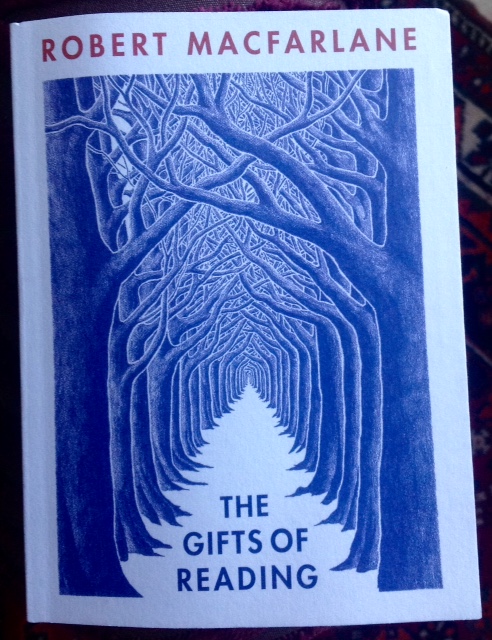Inspiring Older Readers
 posted on 06 Apr 2018
posted on 06 Apr 2018
The Gifts of Reading by Robert Macfarlane
This slim 40 page pocket-sized offering is the latest in the line of Penguin published booklets designed to sit by the till of a bookshop where people might pick them up on impulse. As a marketing ploy I can report that this works well – the fact that I’m writing this review of The Gifts of Reading is a testament to the success of the strategy.
Macfarlane is a writer whose reputation as a great author of landscape and the natural world continues to grow year on year. On this website we recently reviewed his collaboration with the artist, Jackie Morris entitled, Lost Words which laments the decline of a lexicon of the natural world that author and artist want to see saved. Macfarlane provides what he calls ‘spells’ but which are really skilful poetic verses that demonstrate he loves words as much as the nature he describes.
This little booklet he calls The Gifts of Reading is a billet-doux to books and to the giving of books as meaningful and quite intimate presents. It’s also an emotional testimony and memory of his friend, Don, a teaching colleague and friend who died of cancer. Macfarlane and Don met when they both went to teach English Literature in Beijing – Don being a larger than life American who couldn’t get enough of books and wanted to talk about them all the time. Don taught Robert the value of books as meaningful gifts and constantly pressed hard-to-find copies of his favourites on his friend.
When Macfarlane returned to Cambridge to study for his doctorate he kept up a correspondence with Don who eventually pays him a visit. For various personal reasons, the visit though doesn’t go well at first but when Don gives him a copy of Patrick Leigh Fermor’s A Time of Gifts, it turns out to be a book that changes Macfarlane’s life.
There’s an interesting little diversion into a discussion about Lewis Hyde’s 1983 book, The Gift, and his controversial notion of a ‘gift economy’ as an alternative to competitive capitalism. Acknowledging that there are plenty of weaknesses in Hyde’s thesis, Macfarlane takes from it a central message – that gifts, especially of books, can be a richer transaction than any other we can think of.
After his return to China, Don eventually emails Macfarlane with the news of his advanced cancer diagnosis and this prompts Robert to send a constant flow of letters and books that are, at first, acknowledged and then received without response until the inevitable news of Don’s death reaches him:
“A year or so later, I got an email from an address I didn’t recognise. It was from Don’s daughter, Rachel, telling me that he had died. He had been glad to get the letters and books I had sent, she told me, even when he was longer able to write back. ‘Reading kept him alive, she said, ‘right till the end’.
As I said at the outset, this is only a very short essay but it’s an astonishingly rich one and a deeply affecting one. Just superb.
Terry Potter
April 2018